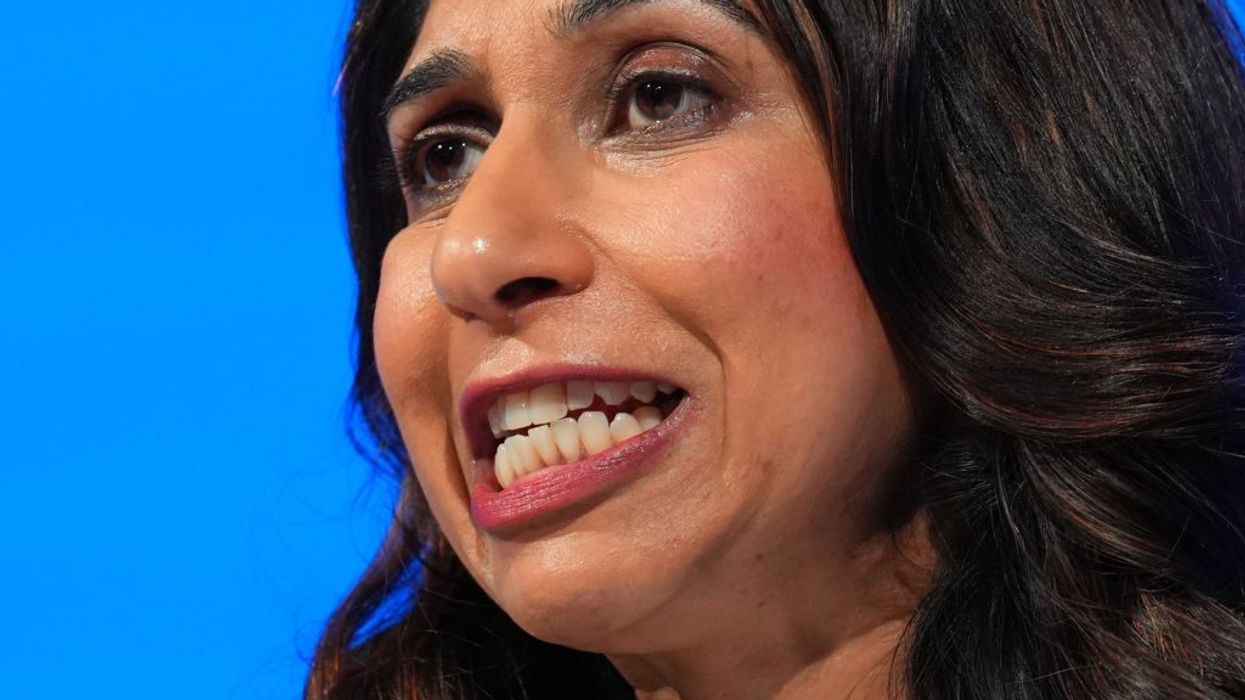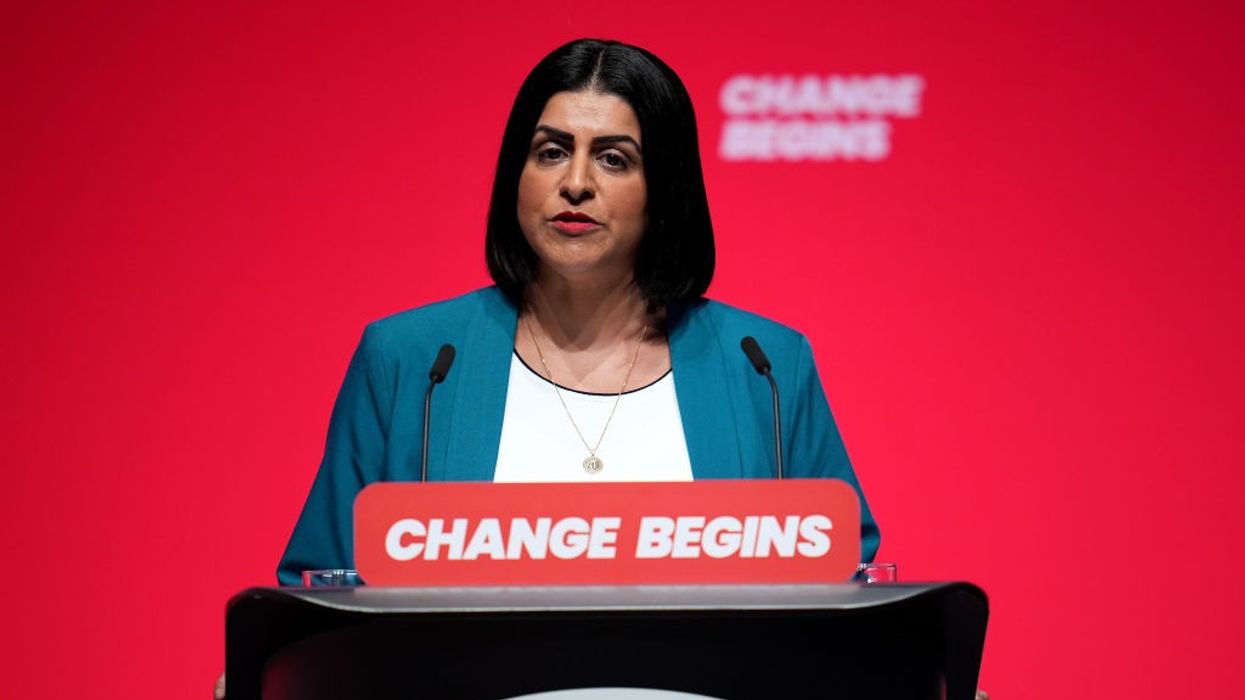HOME secretary Suella Braverman warned on Tuesday (3) that Britain faces a "hurricane" of immigration, as she doubled down on her hardline rhetoric at the Conservative party's annual conference.
Braverman, already a darling of the ruling party's right for her attacks on "woke" politics, used the keynote speech to launch a fresh attack on opponents of her uncompromising approach to migration and other so-called "culture war" issues.
In an address heavy with sentiment but short on new policy, she singled out the main Labour opposition party as part of a "luxury beliefs brigade", characterising them as an out-of-touch elite to draw clear dividing lines before next year's expected election.
She also blamed past politicians from all parties for being "too squeamish about being smeared as racist" to control immigration.
Braverman, whose own parents of Indian origin emigrated to Britain in the 1960s from Kenya and Mauritius, has adopted a severe approach to the policy area since Sunak appointed her a year ago.
It comes as more than 25,000 people have been detected crossing the Channel aboard small boats from northern France so far this year, and regular immigration grows to its highest level in decades.
"One of the most powerful forces reshaping our world is unprecedented mass migration," Braverman told the Tory grassroots.
"The wind of change that carried my own parents across the globe, in the 20th century, was a mere gust compared to the hurricane that is coming."
British voters understood that "the future could bring millions more migrants to the shores, uncontrolled and unmanageable, unless the government they elect next year acts decisively to stop that happening", she warned.
'Luxury beliefs'
Braverman's Conservatives, trailing Labour badly in the polls, are seen as desperate to fight the next election on "culture war" issues, even as Britons grapple with economic woes many blame the Tories for.
She has been one of the leading right-wing voices on such matters, targeting everything from police officers taking the knee in support of racial justice to transgender rights.
She has previously described critics of her stance as the "Guardian-reading, tofu-eating wokerati".
Elsewhere at the conference, the Conservatives said they would be "kicking woke ideology out of science", while one minister falsely claimed Labour wanted to ban people eating meat.
In her new attacks on Tuesday, Braverman said the Conservatives stand with "the law-abiding, hard-working, common sense majority against the few, the privileged woke minority with their luxury beliefs who wield influence out of proportion to their numbers".
"Our politically-correct critics have money, they have status, they have loud voices," Braverman added.
"The luxury beliefs brigade sit in their ivory towers, telling ordinary people that they are morally deficient because they dare to get upset about the impact of illegal migration, net zero or habitual criminals."
Predicting these critics would "flock" to Labour at the next election, Braverman said voters would decide "if they want to curb woke with Rishi Sunak or let it run riot with Kier 'take-the-knee' Starmer".
Although attendees rewarded her with a standing ovation, not all of the party is on board with her rhetoric.
Andrew Boff, a Conservative member of the London Assembly, was escorted from the hall after protesting that she was "transphobic and homophobic".
Meanwhile, former Labour leader Jeremy Corbyn accused Braverman of sounding "like Enoch Powell", the 1960s-era firebrand Tory lawmaker who warned of racial civil war if mass immigration from Britain's old Empire was unchecked.
Far-right groups still hold him up as a figurehead.
The Guardian said Braverman's speech strayed "into far-right territory" because of her "contempt for liberal and legal norms", and suggested the Tories could soon be classed as a far-right party.
Former minister Rory Stewart, who stood for the party leadership, wrote on X, formerly Twitter: "I sometimes think this conference is simply designed to drive the last moderate Tories out."
(AFP)
Braverman renews 'culture war' attacks at Tory conference
Home secretary also blames past politicians from all parties for being ‘too squeamish about being smeared as racist' to control immigration













